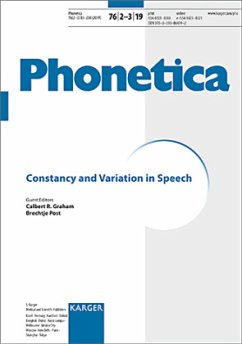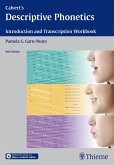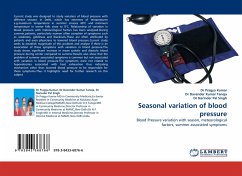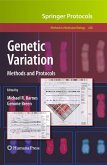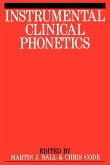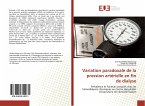The mechanisms involved in the production of a speech sound vary from one speaker or iteration to the next, resulting in considerable variation in the phonetic realisation of speech sounds. The communicative use of language necessarily involves extracting 'constancy', in the sense of category membership, from 'variation' in any given context. In this Special Issue of Phonetica, the topic of constancy and variation in speech is being explored by taking stock of the latest theoretical and empirical advances in research on variable phonetic realisation and abstraction. By focusing on the effects of increased variability on the relationship between constancy and variation (both in terms of its sources and its potential tipping point) the authors build a contrast to prior research which focused on the nature of the representations and processes that are at play in the encoding and decoding of phonetic variation. The papers in this Special Issue straddle the boundary between phonetics and other disciplines (in particular psychology, dialectology, sociology, and historical linguistics). The articles use equally diverse research paradigms, ranging from tightly controlled production to perceptual learning. Collectively, they demonstrate that achieving constancy - either directly in perception, or indirectly in sound change - is crucially determined by the nature of the different sources of variation that may be at play simultaneously, as well as the point at which phonetic variation starts to be perceived in terms of different 'constants'. Within this context it is essential to explore and clarify the complex role of intra- and inter- speaker variability by reflecting on the very nature of constancy as a representation of phonological knowledge that is less stable and less predictable than the term would suggest.
Bitte wählen Sie Ihr Anliegen aus.
Rechnungen
Retourenschein anfordern
Bestellstatus
Storno

